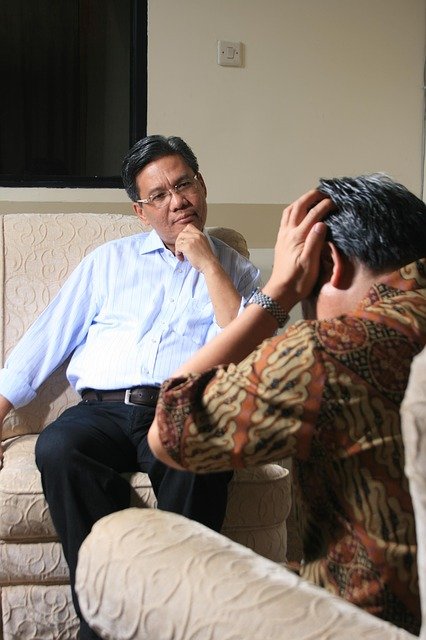Depression, also known as clinical depression, is a mental health condition or an illness that has a major impact on how you feel and can result in an unhappy listless state of mind. It is usually accompanied by a host of other physical and mental symptoms that can make it difficult for you to go about your daily life. While it might be a formidable opponent you can learn how to fight depression alone or with the help of your loved ones through a range of medical treatments.

Depression may develop for several reasons such as genetics or an illness like bipolar disorder. Reactive depression is caused by a reaction to a great loss or a major life-changing event like childbirth. It could also be idiopathic or without any apparent cause.
Depression can manifest not only in adults but also in children and teenagers and might be difficult to diagnose in its early stages. You must get a diagnosis done as early as possible so that you can get help and recover from this debilitating mental illness that affects about one million Aussies every year.
Please note that none of the suggestions below are intended to replace medical treatment, counselling, or any course of treatment prescribed by your doctor. If you or someone you know may be clinically depressed, it is important to get help from a trained expert.
How to fight depression
For people who live alone, it can be harder to recognize symptoms of depression which often means that they access appropriate care later.
To learn how to fight depression alone can also be difficult. It may require medicine, counselling a change in lifestyle, or a combination of all these treatments. The psychologist or expert treating the depression may recommend a few activities to keep the person engaged and energized, and the treatment must be followed as long as required.

For those for whom medical treatment is not deemed necessary, the therapist may recommend the following:
- Following a healthy balanced diet
- Practicing mindfulness and inculcating it into your daily activities
- Practicing meditation daily to boost mental health
- Learning relaxation techniques to lower stress and anxiety levels
How to fight depression with self-care
Many specialists will ask that the client take up a hobby or a practice that provides an outlet to manage stress and improve mental health. These may include the following:
- Any hobby or sport that you enjoy playing or practising
- Drawing, painting or other creative pursuits
- Activities that require physical movement: trekking, working out, running
- Walking or simply sitting in nature for a while
- Reading magazines and books
- Writing a journal
- Playing or listening to music
- Watching funny shows or movies
- Socializing and connecting with loved ones through phone, text, video or face-to-face
- Running errands and household chores
- Pampering yourself with a warm shower and some oils
- Playing with a pet
While it might seem daunting to engage in activities and get out into the world when under the black cloud of depression, try to make it a daily habit. You might not feel better immediately but over time you will rediscover the energy and pleasure you once found in these activities.
With time you will develop a ‘wellness arsenal’ or a set of activities that you know will help you feel better. The more weapons in your arsenal, the better equipped you will be to learn how to fight depression alone. Make sure to indulge in a few activities every day, especially if you are feeling down and do not feel like doing much.
How to fight depression through exercise
It might seem like a task to get out of bed, let alone exercise when depression strikes but you would do yourself a world of good by arriving on the yoga mat or getting yourself to the park. Working out has powerful anti-depressant effects which makes it one of the best weapons you can wield as you understand how to fight depression alone or with your loved ones around you.
Exercise is very powerful when it comes to warding off depression. When it comes to exercising and depression, bear in mind the following:
- Get about 30 minutes of workout a day and break it up into sets if needed
- You might feel tired initially, especially if you haven’t worked out in a while but working out will improve your energy and mood in the long run
- Working out doesn’t have to be an elaborate or expensive activity. Go for a walk in the park, follow YouTube videos at home, or try running or swimming at the beach.
- Exercises that have a rhythmic element such as swimming, walking, dancing and weight training are effective at alleviating depression
- Try to find a workout partner if you struggle to maintain a daily exercise habit. It will not only keep you in good shape but also ensure you are motivated. The added benefit of socialization also does wonders for your mental health.

How to fight depression through a healthy diet
You are what you eat, physically as well as mentally. In some cases, depression is caused by a lack of minerals or vitamins. By following a healthy balanced diet you can learn how to fight depression alone or with your family. Cut down or avoid all foods that hurt brain health such as:
- Trans fats
- Processed foods laden with chemical preservatives
- Alcohol
- Whole foods infused with hormones and pesticides
- Caffeine
In addition to knowing what to eat and what not to eat, it is also vital to know how to eat. Consider the following tips:
- Increase intake of B vitamins, especially folic acid and B-12 which are known to ward off depression. Consider eating foods rich in these vitamins such as leafy greens, eggs, beans, fruits and chicken. If you feel you are deficient in these vitamins, you could take a daily supplement.
- Acknowledge your hunger and never skimp on meals. Going for long periods without food can affect your mood leaving you fatigued and irritable. Eat whenever hungry but aim to choose fruit and veggies more than processed food.
- Consume foods rich in omega-3 fatty acids that are highly essential for emotional health. Most fish are abundant in these fatty acids but if you do not consume fish, you could take a supplement
- High-caloric comfort foods such as baked goods, French fries, sugar-laden snacks, pasta and other refined carbs might alleviate your mood in the short run but can cause long-term damage to physical and mental health because of the sugar crash they bring on.
- While technically not a food recommendation, make sure to get at least 15 minutes of strong sunlight a day to boost serotonin levels and augment emotional health.

How to fight depression with professional help
You might have learned how to fight depression alone; taken self-care measures, and inculcated massive lifestyle changes but if you’re still struggling to alleviate depression or feel you may be about to have a nervous breakdown, you should seek professional help.
In many cultures, depression is not considered a serious illness and is written off as being “all in the mind”. This can be harmful for the person suffering from it and could lead to serious consequences.
If you or someone you know is suffering from depression, do not hesitate to seek external professional help. It isn’t a sign of weakness if you need to consult an expert. Continue with your self-care measures and give them a boost by consulting a mental health professional. This can speed up your recovery and prevent a depressive relapse.

Not everyone can learn how to fight depression alone, especially if the depression has been present for a long, so it is vital to seek mental help.
If you are suffering from depression, you should understand that will not be as easy to treat as the flu. It might take a while and go through several cycles of recovery and relapse but with the right treatment and a commitment to your health, you will emerge victorious.
In Australia, there are several communities and authorities formed to help anyone who may have depression. Consider reaching out to the following:
- BeyondBlue
- SANE Australia
- LifeLine
- Community health centre
- Your general practitioner
How to choose the right mental health professional
If you are concerned about finding the most suitable mental health professional, your best option is to consult your general practitioner first. They can provide you with referrals or direct you to the right place for professional help.
Going to an expert for help is the first step, and it’s a big one. It takes courage to admit to yourself that you have a problem and to take action to fix it. But when trying to understand how to fight depression it is imperative to be deeply involved in the process. Do your research, participate in the treatment, take your medicine regularly, and follow up with self-care measures such as diet, exercise and lifestyle. Do not depend solely on a mental health professional to recover from depression.
Also make sure to not be impatient with your counsellor or psychologist, or to dismiss the suggested line of treatment. Depression is a complex and debilitating mental health condition, and it can take time to get to the cause of it and help you heal.
Do note that treatment may take a long time to show results or it may show immediate results. The important thing is that you stick with it, no matter how you feel. Quitting treatment too early may lead to a relapse so work patiently on yourself for as long as the expert recommends.
This doesn’t mean that you cannot question your treatment or the therapist treating you. If you don’t like your therapist or believe that some other course of treatment may work better, you should do your research, get a second (and third, if necessary) opinion, and talk to other experts to help you find a psychologist you like.
Reach out to loved ones
You do not have to learn how to fight depression alone and should seek the help of your family and friends. Many people feel hesitant to talk about depression with loved ones, but it helps to have allies in the battle.
Apart from the mental and emotional relief of talking to someone honestly, getting your friends and family involved can also help in these ways:
- Keeps you accountable for your treatment
- Helps you research other courses of treatment
- Helps with daily errands if you are unable to manage them: driving to the clinic, etc.
- Keeps an eye on you for down days
- Can be buddies for working out, hobbies, or trying new things
For many people, it is easier to talk to a stranger than to a family member about an issue like depression. The stigma around mental health is prevalent everywhere and it may be easier to reach out to a counsellor online or to a helpline or a support group for depression.
If you talk to people you know, you should be prepared for many different types of responses and prepare yourself to handle the difficult ones. It isn’t easy for a layman to understand or sympathize with depression because it is a complex topic.
Ways to talk without announcing your depression
Alternatively, you can work on staying connected with others and maintain strong social ties to boost mental health without having to discuss your depression. Some of the ways you could do this are:
- Have a workout buddy to go for runs or gym sessions
- Join classes or a club to meet new people
- Volunteer to help others while helping yourself
- Schedule weekly dinner dates with your significant other
- Get in touch with old friends through email, chat or call
- Have weekly outings with a friend in the form of movies, concerts
- Ask a friend out for a meal or a coffee
- Request a loved one to check in regularly
Treating depression with medical care
The fight against depression seems lonely but you do not have to fight it alone. There are many treatment options available to you and they can reduce or eliminate many of the symptoms brought on by depression.
Some options are:
- Medications in the form of antidepressants or sedatives
- Personalized therapy from a psychologist, doctor or other mental health professional. The course of treatment here depends on your symptoms and preferences.
- There are community programs that are centered around providing support to anyone with depression. Such programs usually provide employment help, rehabilitation, information, training and accommodation in addition to giving you a chance to meet people with the same experience as you.
- Electroconvulsive therapy (ECT) is one of the last lines of treatment. It is more intensive than the others and is usually only recommended when other lines of treatment fail to accomplish the desired results.
It is not unusual for depression to go undetected for months or years if no treatment is being sought. You must recognize depression as soon as possible and learn how to fight depression alone or with the help of your family. Seek treatment because the sooner you start to tackle the condition, the faster will be your rate of recovery.

While there is no ideal treatment for depression, each course is effective in its capacities and can go a long way in helping you recover. In addition to treatment, you should also take self-care measures to aid your recovery. By finding the right treatment and the right professional, half the battle is already won.



